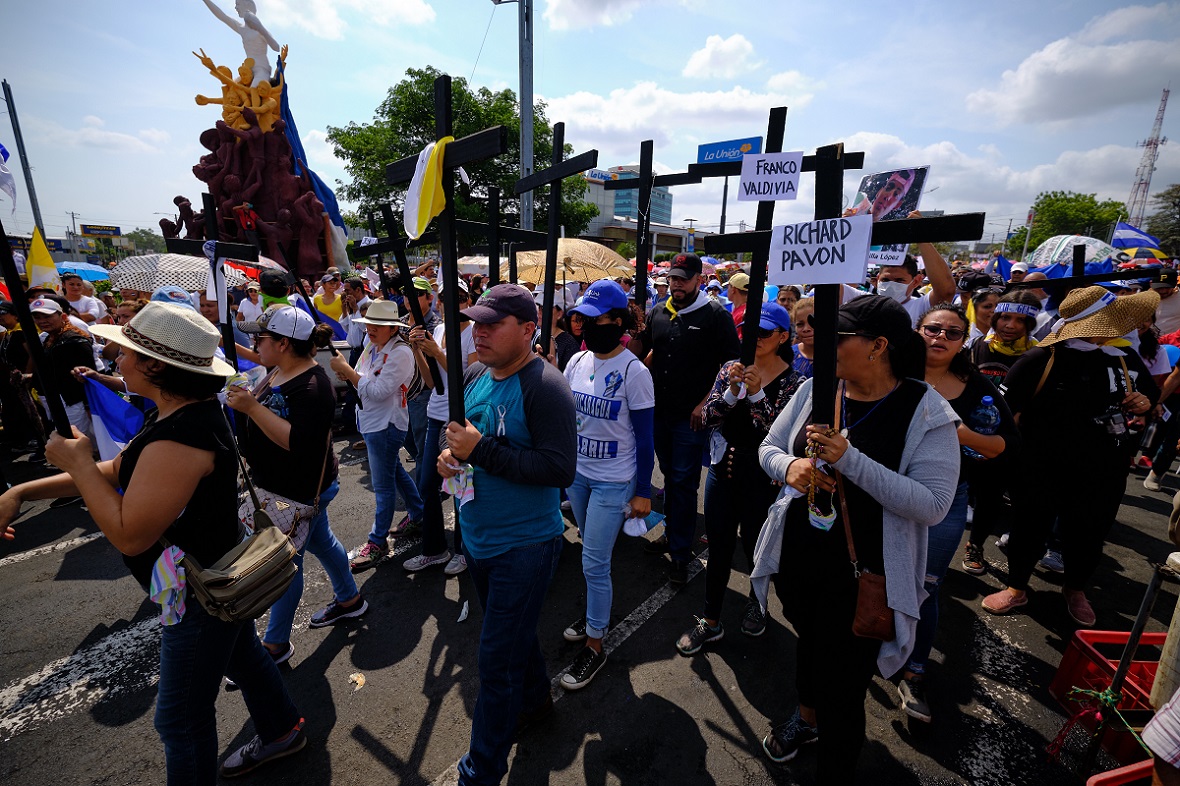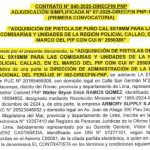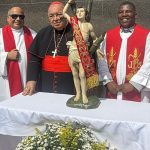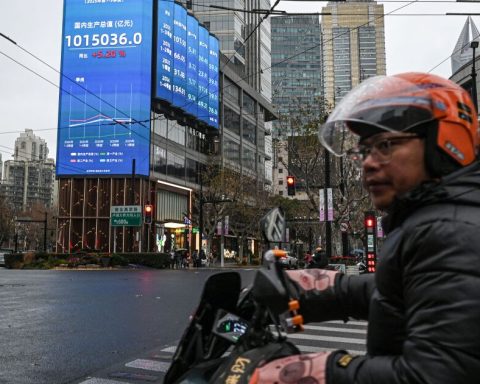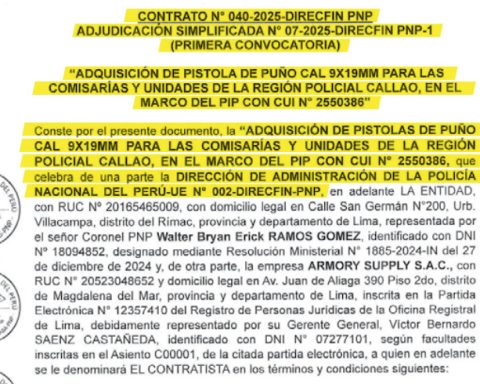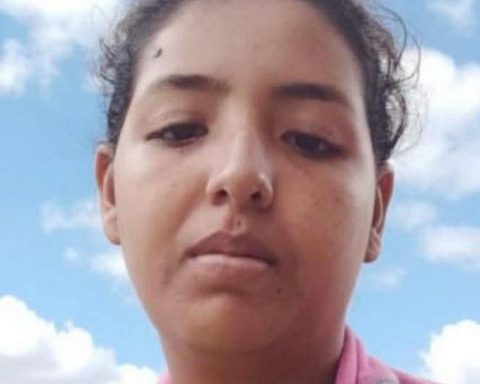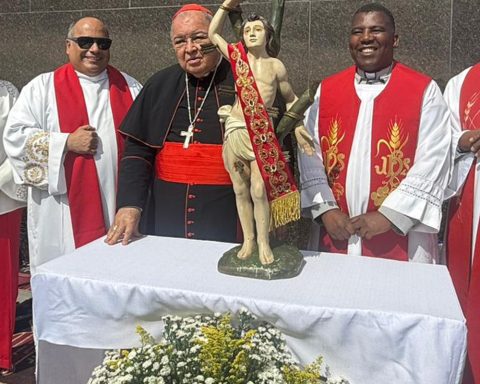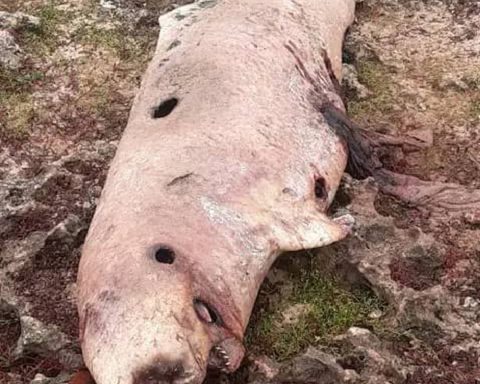Fifteen trade union and human rights organizations in Nicaragua welcomed the resolution of the United Nations Human Rights Council, which establishes the creation of a mechanism of three international experts to investigate human rights violations of the Nicaraguans, and they stated that this represents a new path of work after exhausting all the avenues of the Inter-American Human Rights System.
Although the mechanism does not have the collaboration of the State of Nicaragua —which has rejected all resolutions on human rights— the defenders explained that this will not be an impediment to the investigation, since the victims can provide evidence and testimonies to clarify the cases. .
For the president of the Nicaraguan Center for Human Rights (Cenidh), Vilma Núñez, the establishment of the mechanism poses “a greater commitment, greater professionalism and more persistence” in the search for evidence to establish the responsibility of the State in the crimes committed.
The representative of the Nicaragua Nunca+ Human Rights Collective, Juan Carlos Arce, valued that “this is a new roadmap of work” in which they will put a lot of effort and clarified that the Daniel Ortega regime “has never collaborated”, —even— not even when it allowed the entry of a representation of the Office of the United Nations High Commissioner for Human Rights (OACNUDH ) in 2018.
Similarly, Yaritza Mairena, from the Union of Political Prisoners and Prisoners of Nicaragua (UPPN), emphasized that this mechanism created by the United Nations is a contribution to “building the road to justice” and that is why she valued , “victims are a fundamental piece”.
They will establish responsibilities
The organizations —which are part of a coalition of 21 international, regional and Nicaraguan human rights organizations, called Colectivo 46/2— also pointed out that the Council’s resolution recognizes the seriousness of the sociopolitical and human rights crisis in Nicaragua, the failure to comply with international obligations on the matter, democratic backsliding and the erosion of the rule of law.
“The creation of a specific investigative body for Nicaragua is a very important step to establish responsibilities for the terrible suffering of the Nicaraguan people during the last four years and sends a clear message to the country’s authorities that, sooner or later, they will answer for the crimes they are committing,” says a press release.
They add that they have high hopes that the new mechanism “reviews and records each of the complaints documented in our Truth Report, promotes compliance with the international obligation of responsibility for serious human rights violations as a guarantee of non-repetition and advance towards the opening of the processes of memory, truth, justice and reparation”.
Among the signatory organizations are: Nicaraguan Independent Journalists and Communicators (PCIN), Penal Action, Articulation of Social Movements, Center for Justice and Human Rights of the Atlantic Coast of Nicaragua (Cejudhcan), Committee of Relatives of Political Prisoners, Group of Reflection of Political Prisoners (Grex), Nicaraguan Initiative of Human Rights Defenders, Autonomous Women’s Movement, Nicaraguans in the World, Popol Na, Legal Defense Unit and Registration Unit.
“A fundamental step to achieve justice”
The director for the Americas of International AmnestyErika Guevara Rosas, affirmed that the establishment of an independent accountability mechanism for Nicaragua constitutes “a fundamental step to achieve justice, truth and reparation for the horrendous crimes and abuses that have been perpetrated in the country since 2018.”
For Guevara Rosas, the establishment of a mechanism also sends the victims “the firm message that they are not alone in their fight against impunity” and that “those responsible for this type of act must know that it is not possible to avoid surrender. of accounts for human rights violations. The Nicaraguan authorities must immediately end the persistent repression,” he added.
??✊Collective 46/2 celebrates the establishment of a #MechanismForNicaragua of accountability.
“It is essential to ensure that the serious violations committed during the 2018 protests… do not go unpunished”,?️Tania Agosti of Raza e Igualdadhttps://t.co/sF0IfQqnhm
— Race and Equality (@raceandequality) March 31, 2022
Tania Agosti, from the Institute on Race, Equality and Human Rights, stated that “it is essential to ensure that the serious violations committed during the 2018 protests, including murder, torture, assault and other acts of sexual and gender-based violence, as well as like other abuses, including those against indigenous peoples and Afro-descendants, do not go unpunished.”
As well Human Rights Watch He pointed out that the resolution of the Human Rights Council constitutes “a key step to promote justice for serious human rights violations in Nicaragua.
“The human rights crisis in Nicaragua demands rigorous international scrutiny,” said Juan Pappier, senior researcher for the Americas at Human Rights Watch. “With this resolution, the UN Human Rights Council has sent a clear message to President Ortega that the international community will not tolerate the abuses of his government,” he added.
Since 2018, Nicaragua has been immersed in a deep human rights crisis. More than 350 people have been killed, hundreds have been arbitrarily detained, and thousands have been forced to flee the country. The government has canceled the legal permits of more than a hundred civil society organizations and has confiscated three independent media outlets.
Last year, in the context of the elections, the situation worsened further, with security forces detaining dozens of people, including independent journalists, potential presidential candidates, political activists and others.
The Government of Nicaragua has repeatedly refused to cooperate with regional or international human rights mechanisms to put an end to the human rights crisis in the country.
